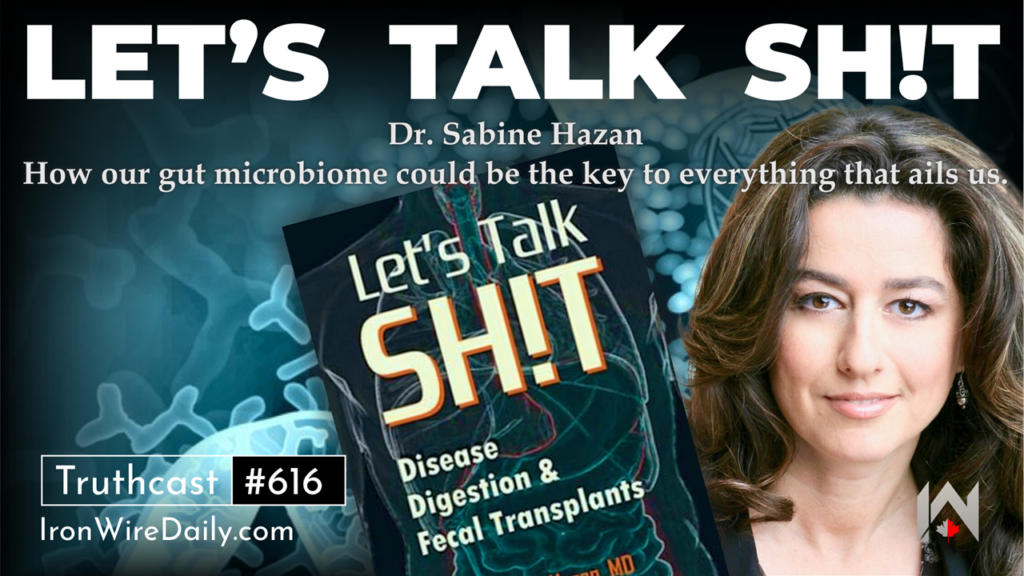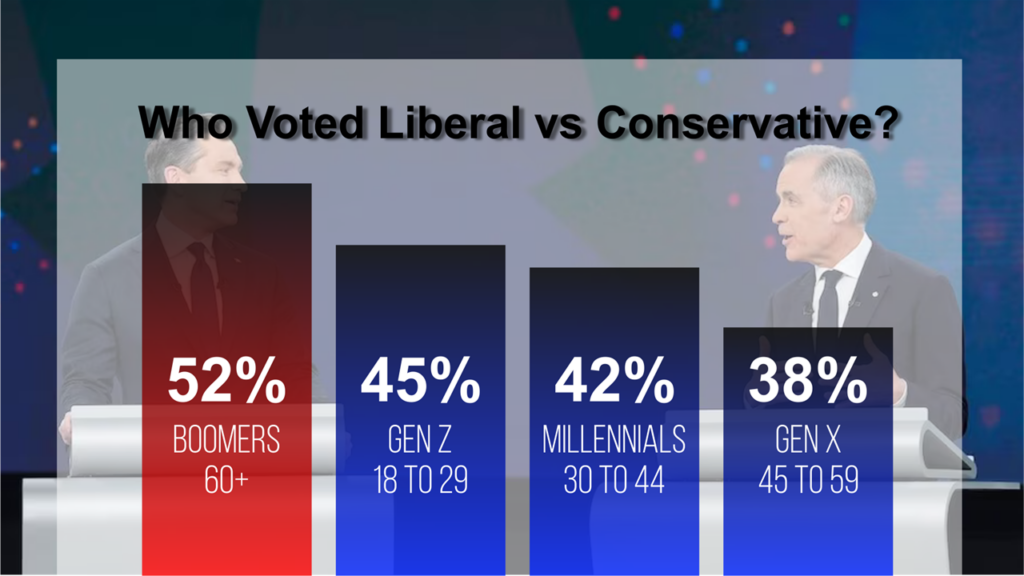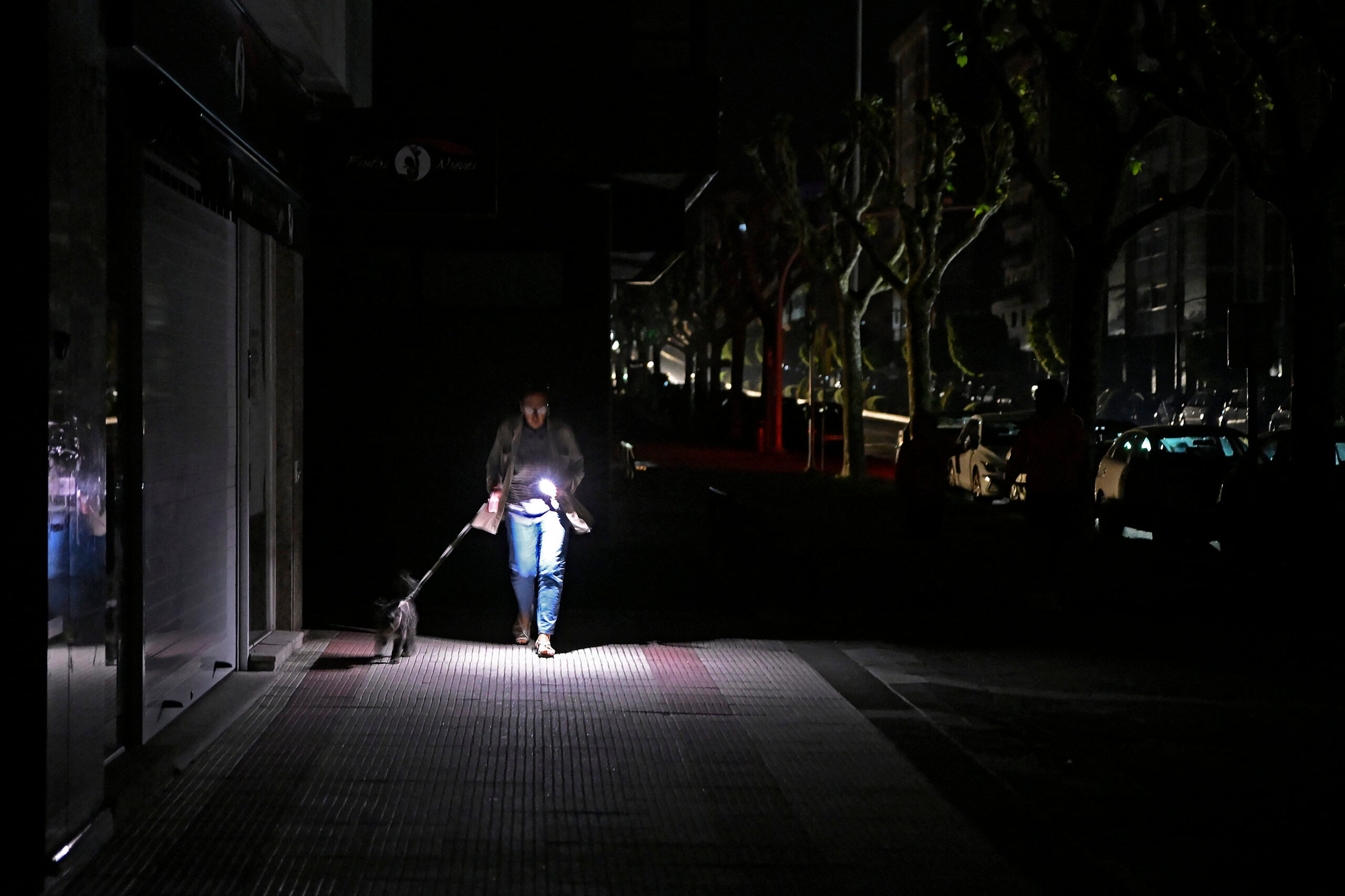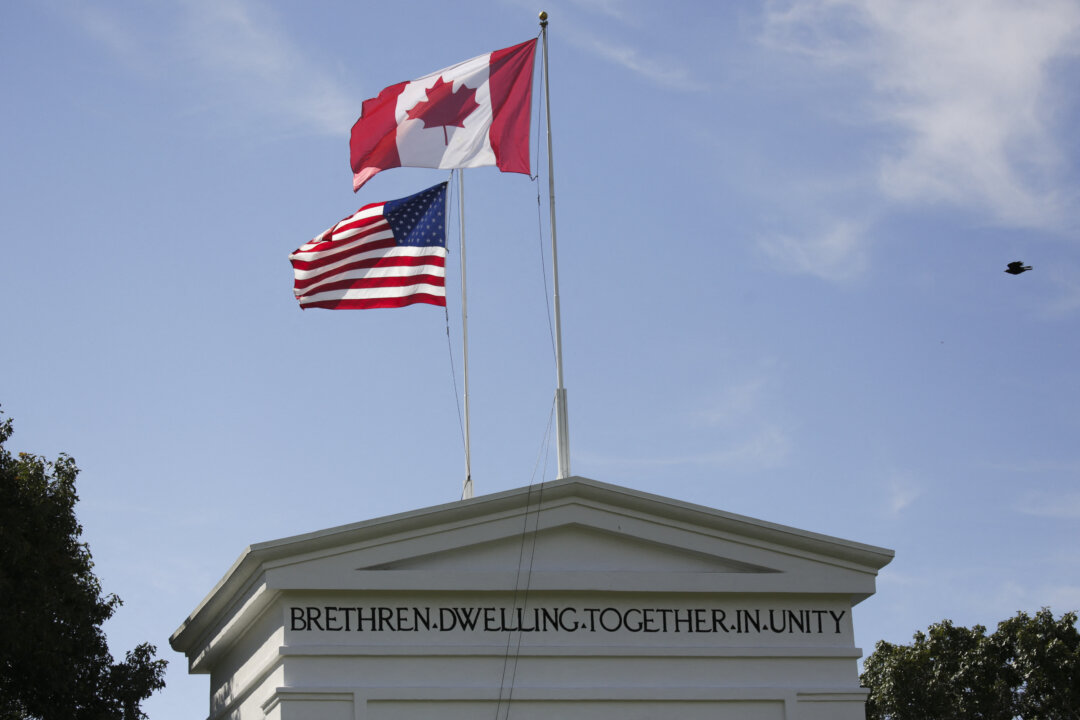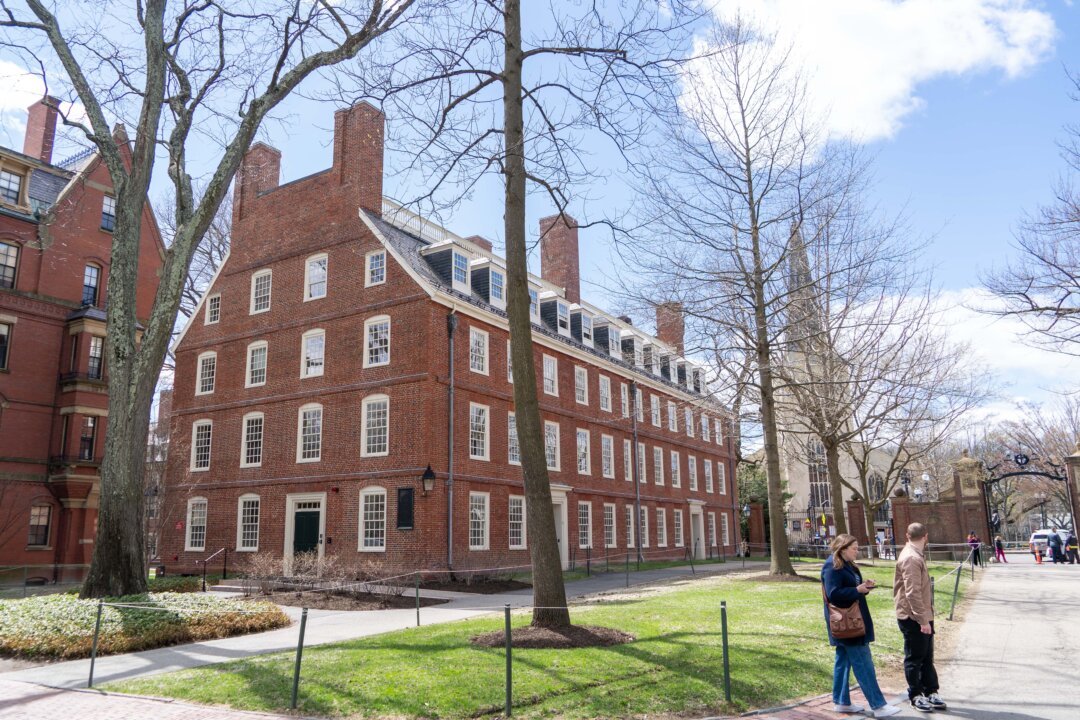What Makes Us Sick: Terrain vs Germ Theory
Dr. Rob Verkerk
We are subjected to constant propaganda that the next pandemic is inevitable, that sooner or later, probably sooner, there will be a truly devastating virus or bacteria that will kill a significant percentage of us.
But there are those who question whether or not viruses even exist. While belief in the terrain theory, often seen as the alternate view to germ theory, doesn’t necessarily mean that person does not believe in the existence of viruses, there are proponents of the theory who do categorically deny their existence.
As the majority of us are not scientists, not doctors, our own belief is often subject to what we hear. And what we hear is overwhelmingly controlled and funded by those who have a vested financial interest in a belief in germ theory.
In an effort to provide you all with a comprehensive understanding of both sides of the argument, and to do so in such a way that we invite you to draw your own conclusions, I am joined today by Dr. Rob Verkerk, the founder of the Alliance For Natural Health.
Dr. Verkerk is an internationally acclaimed multi-disciplinary sustainability scientist with a 40-year background in environmental, agricultural, food, nutritional and health sciences.
In this, part 1 of this two part extensive interview, Rob explains both sides of the germ theory vs terrain theory argument, while at the same time educating us on the fact that the issue is far more complex than many of us are aware of, or may even have considered.
Will Dove 00:00 We are subjected to constant propaganda that the next pandemic is inevitable that sooner or later, probably sooner, there will be a truly devastating virus or bacteria that will kill a significant percentage of us. Will Dove 00:15 But there are those who question whether or not viruses even exist. While belief in the terrain theory, often seen as the alternate view to germ theory doesn't necessarily mean that person does not believe in the existence of viruses, there are proponents of the theory who do categorically deny their existence. Will Dove 00:35 As the majority of us are not scientists, not doctors, our own belief is often subject to what we hear. And what we hear is overwhelmingly controlled and funded by those who have a vested financial interest in a belief in germ theory. Will Dove 00:53 In an effort to provide you all with a comprehensive understanding of both sides of the argument, and to do so in such a way that we invite you to draw your own conclusions, I am joined today by Dr. Rob Verkerk, the founder of the Alliance for Natural Health. Dr. Verkerk is an internationally acclaimed, multi-disciplinary sustainability scientist with a 40-year background in environmental, agricultural, food, nutritional and health sciences. Will Dove 01:25 In this part 1 of this two-part extensive interview, Rob explains both sides of the germ theory versus terrain theory argument, while at the same time educating us on the fact that the issue is far more complex than many of us are aware of, or may even have considered. Will Dove 01:52 Rob, it's a real pleasure to have you back on the show. Dr. Rob Verkerk 01:55 Will, fantastic to be with you and with the discussion we're going to have. Will Dove 01:59 Indeed, and I stumbled across this article that you had written. In fact, it was a couple of years ago, it was in 2022. But giving a very balanced view of the argument between those who believe in germ theory and those who believe in the terrain theory. But as you and I were discussing, prior to the interview, it's actually a lot more complicated than that. So, I'm going to let you address that first. Dr. Rob Verkerk 02:25 Well, you know, if you look at science generally, it is a tool that we use to better understand the world around us. And I think the first starting point is recognizing that we don't understand very much about the world around us. We understand more over time, we often get things wrong, and we use theories, hypotheses, that we stitch together, to see these kind of last the test of time. And one of the horrendous things that's happened over the last four years is censorship. Dr. Rob Verkerk 03:02 And in fact, we've just launched a major global censorship campaign last week, that really is targeting the kind of medical misinformation policy of people at YouTube, because they say, unless you have content that is in alignment with the views of what they called local authorities read that as the NIH, CDC, FDA, etc. All the World Health Organization, your content will be disallowed. Dr. Rob Verkerk 03:35 So for example, what they've started doing in this so called post pandemic period is now trying to remove content from leading experts in the field of say, keto diets and intermittent fasting. Why? Because the CDC and WHO, they're all about drugs and vaccines, you know, our perception, on all sorts of issues, is framed by the information that we receive. And so our minds are all the time that there's some wonderful neuroscience on this. Dr. Rob Verkerk 04:10 There's a great paper by Friedkin back in 2016, published in the journal Science that looked at how people reacted to whether or not the US should go to war in Iraq, over the possibility that weapons of mass destruction existed. And what it showed clearly is that this tendency to create a consistent logical structure in the information they received was dependent on their views. So in other words, when they were given information by the media, that it was highly likely that weapons of mass destruction existed, they said, let's go to war guys. Dr. Rob Verkerk 04:54 When it became less evident that those weapons existed, they changed their minds because we're always looking between beliefs that we have, that are based on our framing of information that's now evermore dependent on the news and information we receive. And Will, this is why what you're doing is so important, because if you only follow CNN, BBC and the likes of them, you are getting a very, very narrow perspective of the world around us. Dr. Rob Verkerk 05:27 So when it comes to things like viruses, or the origins of SARS-CoV-2, or even whether the earth is flat, you will find that there are a whole bunch of people who've got different views, because they've immersed themselves in specific information that often confirms their view, they have created a consistent logic structure, but that consistent logic structure is going to be at odds with someone else's. And as more and more people, especially young people now become dependent in online media. Dr. Rob Verkerk 06:04 And because the media are filtering, you know, there is pre-selected content that comes your way. So different users receive different information on their cell phones. And it creates this extraordinary confirmation bias that causes different groups of people who are living in different echo chambers, to see the world in radically different ways and start fighting with each other. Dr. Rob Verkerk 06:33 So, this social conflict that we see now is an inevitable result of the way in which big social has taken over and controlled the types of content is doing this with very, very sophisticated algorithms and artificial intelligence. And actually, it's one of the reasons that we're having this discussion today. Because the people who do not believe in the existence of viruses at all, are also being exposed to content that keeps confirming that. And, of course, they will often think that anyone else who believes viruses exist, because they don't see the detail of the kind of information that we've been exposed to some of us over many decades. Dr. Rob Verkerk 07:22 They'll think, well, we're just shoves from pharma, you know, we're germ theory protagonists, you know, we're supporting the vaccines, you name it. When actually, the Venn diagram shows that we have a lot more in common with people who are so called virus deniers. Dr. Rob Verkerk 07:41 Thank you. Yeah, I think that's something... Dr. Rob Verkerk 07:45 We have a proponent of the terrain theory, as are they. But that doesn't mean that I do not believe in the existence of viruses. Will Dove 07:56 Right. And I think we have to come clean on that, both of us to say that we both absolutely believe that viruses exist. But we also believe in terrain theory. And what exactly is meant by that will become clearer as we proceed on through this discussion. But I do want to give a very balanced view as much as we can, and even to those who only believe in the terrain theory who said, no, viruses, germs, they don't exist. And you've been able to give a fairly good explanation of that in your article. Will Dove 08:26 So I'm going to ask you to do that now to explain, what is their argument for not believing in viruses at all, simply believing the terrain theory? And I was surprised to find that one of the signature stories that had viroLIEgy, it's a bit of a play on viroliegy.com was Michael Yeadon, which really surprised me. So, if you would please explain their viewpoint and why they believe that? Dr. Rob Verkerk 08:53 Yeah. Again, what they've done is remove themselves from the wider argument of the existence of viruses in the environment. And I should, at this point, make it very clear that I'm not a virologist, I'm not an immunologist, I am a multidisciplinary scientist with a background specifically in ecology. So, I tend to look at big ecological systems. My PhD and postdoc were all on what's called multi trophic interactions. So, I look at big systems and that's one of the reasons that most of my life had been dedicated to understanding how nature works. Dr. Rob Verkerk 09:36 And to put it in context. My belief, based on the knowledge that I've acquired over 40 years suggests to me that viruses, neither living nor nonliving, they are elements of genetic information that are exchanged, they probably preexisted life. You know, life as we know it in terms of its eukaryotic multicellular form. And they probably also exist as a very important element in creating that positive evolutionary development of animals and plants. Dr. Rob Verkerk 10:15 The most abundant viruses exist in the oceans, the first identified viruses and I know this is contested by the virus deniers, Tom Cowan and Mark Bailey is the tobacco mosaic virus in plants. Yes, that is by way of background. And I should also say that another important principle to recognize is this idea that all of us only have pieces of information. And in terms of understanding disease causation, a lot of people who think about viruses majorly think about their role as pathogens. Dr. Rob Verkerk 10:55 In fact, I've heard Mark Bailey and Tom Cowan talk about viruses as pathogens, and if they're not pathogens, they can't exist. And that isn't the prevailing view in ecology. The prevailing view is that a tiny proportion of all the viruses and there are currently over 12,000 in the taxonomic database, there are estimated to be well over 2 million that exists, and probably many more than that. Dr. Rob Verkerk 11:22 Ultimately, they are exchanging DNA between different systems, most of them occur in relation to microbes, bacteria and archaea. And some of them in multicellular organisms. So they quite rarely create disease. So we don't necessarily understand exactly what they're doing, but we know that genetic information can be exchanged. And the prevailing view that I'm in alignment with is that a significant portion or even the human genome is probably a virum. Dr. Rob Verkerk 11:53 So, we have retroviral elements that have been incorporated into our own DNA. And we also understand that the large, the vast majority of our own genome is non coding. And we used to think of that as genetic junk. Now we realize, hold on, it has a non-local effect on gene expression. And it's probably really important in terms of our epigenetic interaction, the way in which the environment plays on our genome to create a pattern of gene expression that gives us the greatest survival opportunities in any given environment. Dr. Rob Verkerk 12:36 And that takes us into this world where we have to potentially move away from the deterministic model, you know, this thing called a virus that Cowan and Bailey, etc., are talking about into a process as a whole literature that is now suggesting we shouldn't see viruses as a thing, as a particle, because they exist only as a particle, as RNA or DNA, single stranded, double stranded, within a protein coat, perhaps in one or more envelopes. That's only how they exist for a small part of their so-called lifecycle. Dr. Rob Verkerk 13:18 And of course, they don't have a metabolism. And that's why they are these mobile genetic elements that can move into other cells. They then take over the ribosomal machinery, the transcription machinery of the host cell, and produce copies on cells, not always doing harm in the process, perhaps having some... Will Dove 13:40 Might be better to think of them as genetic messengers. Dr. Rob Verkerk 13:44 That's right, that's a good way of looking at it. It's the same way that we have changed our view even of nutrition. How do we look at nutrition? We used to think of it as the provision of sustenance that provided energy to the body in the form of chemical energy, ATP. We now see it a very different way. We look at the mass of plant compounds that are there. These plant compounds themselves are part of nutrition. We know that healthy, colorful diets are good for us. Dr. Rob Verkerk 14:18 But most of these flavonoids and other colorful compounds don't have any energetic value whatsoever. What do they do? They provide information to the body. Okay, so, we need to see nutrition as information. And that's a wonderful way of looking at these mobile genetic elements, viruses, when they are encapsulated within a protein sheet. They are doing stuff and we only understand a very small part of what they're doing. And of course, we have a whole industry in the form of the pharmaceutical and vaccine industry that's got massively preoccupied on one part of their function, which relates to their potential to cause disease in certain situations. Dr. Rob Verkerk 15:07 And this is why the terrain hypothesis is so important, because we know that even of the 200 plus viruses that are known to cause human diseases, many of them do not cause disease in some people. People can be asymptomatic. People can have a very small exposure to the viral load. Their innate immune system can knock out the virus before it really takes hold, and others can become potentially seriously ill. And it's also really served the pharmaceutical and vaccine industries for people to develop a fear of microbes. Dr. Rob Verkerk 15:46 And of course, all of that has happened in tandem with our increased understanding that the vast majority of microbes, feeding the microbes in our gut, the microbes in our skin, the microbes in our mouths, are predominantly good guys doing good services for us all the time. And if we use antibiotics, things that are broad spectrum killers of these microbes, we don't do too well. And we're understanding exactly the same relationship when we look at the soil. Dr. Rob Verkerk 16:19 That's one of the big fallacies in this climate change motivated vegan movement is this idea that we just grow vast tracts of cereals that are still saturated with fungicides and glyphosate. But what do we do? We wipe out most of the soil microbes on which the entire biosphere is dependent? So, we're at an early stage of understanding just how fundamental these microbes are. Dr. Rob Verkerk 16:47 So, viruses are another element of microbes. They're very different from bacteria and archaea and mycoplasma, for example. But they are very, very important, least of all, when they cause diseases like SARS-CoV-2. So, the real sticking point I feel looking at the Cowan, Bailey, Kaufman arguments is really looking at this idea of isolation, purification, direct versus indirect evidence of existence, and then the propensity to cause disease. And of course, that's why they keep going back to the original Koch's postulates. Dr. Rob Verkerk 17:37 And as an ecologist, for me that Koch's postulates are completely irrelevant. You know, because the Koch's postulates are entirely built around this idea that you have to have a microorganism that basically can be shown to cause disease. And if it can't cause disease, it can't exist. And we know most of the time these viruses, or bacteria, or mycoplasma, or whatever, do not cause disease. Will Dove 18:09 Right. And I think your framed it really well, this argument between the two sides, it has focused a great deal on direct and indirect proof of existence of viruses, and do they cause disease? So, I'd like to ask a couple of specific questions based upon your article, because I know that you know the answers to these. In this debate, the proponents of the germ theory who are wanting to try to convince not necessarily those who believe in terrain theory, but those who would say that the viruses don't exist, and I think we have to differentiate between those two groups. They would say, in terms of direct evidence, we've got electron micrographs, we can show them to you. So, the first question would be, what is the response of those who do not believe in viruses to that direct evidence? And then, once you answer that one, I'll ask you about the indirect. Dr. Rob Verkerk 18:59 So, I'm totally in agreement with Cowan and Bailey on the point that showing a picture of something at a given point in time, particularly when you recognize that a virus is a lot of the time not a thing, but a process isn't in itself evidence of the existence of viruses, so because you can see them there. And this is where I think where the deficiency is in terms of the lack of understanding of the science of pathology, I mean, that they're very, very critical of the entire discipline of virology and some of it for a very good reason. Dr. Rob Verkerk 19:47 I totally support their many criticisms of the fact that if you're going to do isolation and purification, you should always have a control that is absolutely an identical control in every sense, not just a saline control, or in fact, no control at all. Because how could you then prove that there weren't impurities involved? And of course, they make the point of you take a nasal swab and then you put that into culture, you're putting a bundle of things potentially into culture, you know, different bacteria, mycoplasma, fungi, etc. Dr. Rob Verkerk 20:32 They also make the comment that these cultures have a whole bunch of nasties in them, including antibiotics. And one of the reasons for that is actually, the virologists are trying to standardize what they're doing. And they're putting things in, generally killed the other nasties, like the bacteria, and the mycoplasma, and the fungi. So as everyone knows, you go to your doctor, if you have a virus, they may prescribe antibiotics, but the doctors even know that that antibiotic will only deal with a secondary bacterial infection, who won't deal with a viral infection. Dr. Rob Verkerk 21:14 That's one of the reasons those nasties are in there. Essentially, like any developing science, they use a series of tools. Another thing is, they're often criticized for using a very limited number of different cell culture types. Well, because within a kind of lab petri dish type environment, viruses don't grow so well. Viruses are a process that for some reason, really like a whole living host. So, when you just take it out - and we don't understand exactly why. Will Dove 21:50 I'll suggest put it another way of a complete ecosystem, which, again, your point, with these companies, they're making an extremely artificial environment in which to study these viruses, with no control, no complete ecosystem, to see how they'll behave there. Dr. Rob Verkerk 22:05 Correct. And when they stumble upon a system and some of these were developed in the 70s and 80s, and 90s, they go home, this green monkey Vero cell culture seems to work for a lot of different viruses. Let's keep using that. And then, of course, we do find that some of them are contaminated. They're often not using controls. You see, I'm a huge proponent of the importance of discourse. Dr. Rob Verkerk 22:33 And, you know, based on the article that I wrote back in 2022, we did have quite a lot of discussion with the Bailey's about creating an environment where we would share information and try and come to an understanding. Because our concern was, this debate is creating further division within the freedom movement, you know, and the freedom movement understands the problem over massive exaggeration of the risks, particularly in the latter months of the pandemic. Dr. Rob Verkerk 23:11 A massive overselling of vaccines as a solution complete censorship of early treatments and other information that would have been lifesaving. I mean, some of the policies have been disastrous. And it's good to see now, two years on, that a lot of the concerns that many of us had on our portal covidzone.org, we have the full repository of over 350 articles that I'd largely have written as part of NIH from the beginning of COVID. And, frankly, we haven't had to change our views, the virus deniers would say, "look, you need to change your view on the virus existing." Dr. Rob Verkerk 23:57 But I think when you look at the patchwork of evidence, there's the spectrum, the totality of evidence, I find it very, very difficult to argue that, and I show some examples of this in my article from two years ago that SARS-CoV-2 hasn't been isolated. I also see very, very clear evidence that's now agreed by a number of state departments and federal departments in the United States, that it's almost certain that SARS-CoV-2 was manipulated into a barteri. Dr. Rob Verkerk 24:32 Do we know it was deliberately released or not? I would say the jury's out on that specific question. But if you don't believe in viruses, you also have to then say, well, the 16 million also very, very similar genome sequences for SARS-CoV-2 that are now sitting on GISAID, which is the main database that was set up originally for influenza, and now has become the primary portal where sequences of SARS-CoV-2 are uploaded. There're 16 million there now. It would have to be a hell of an orchestration to get, it has so many sequences to be near identical. Dr. Rob Verkerk 25:22 And you'd also have to then come up with good reasons why we had kind of waves of so-called infection in which the clinical pattern was very, very similar. And I hear them sometimes say, well, probably the effects that we saw were either nonexistent, but there are many out there who've lost relatives, or had seen people very close to them, who were very ill, who had a very similar pattern of set of symptoms that also changed over time. Dr. Rob Verkerk 25:57 And to me, and to many others who are looking at this scientifically, that reflects the change in the virus host relationship over time, that always is the case. You'd also have to deny the principle of gain of function research. So, is that all just completely fictitious, and these guys are playing around with placebos in their labs, or they working with actual organisms with viruses? Will Dove 26:26 And it's that form of what I would call indirect evidence, that to me is the most convincing where you can talk about the fact that say there's a flu or a cold going around. And not only can it be seen to be spreading from a - perhaps from patient zero outwards, but everybody who gets infected, has the same symptoms. And then you can take it even farther and say, well, what's the difference between somebody who has influenza and somebody who has Zika? They have a completely different set of symptoms. I don't see any way that the terrain theory on its own, absent of accepting the existence of viruses could explain that. Dr. Rob Verkerk 27:05 Yeah, I think you're right. I think also the subject of contagion has been manipulated, it isn't as clear cut. I mean, did you remember when SARS-CoV-2 first broke out, I found it pretty strange that they weren't talking about ventilation. It was all about masks that we knew would fail just based on particle size of viruses. We don't understand very much about how much an infectious agent can be transmitted by contact, by air, by body fluids. And we know that there's been often a kind of simplification of the science usually, to justify a particular product or instill certain fear in people. Dr. Rob Verkerk 27:54 And this is where I'd say, some of the work that Cowan and Bailey and others are doing is very useful, we need to see people trying to up turn all sorts of theories. This is the way that science works through discourse. And over time, the pieces of the jigsaw of which we only have some are shaken up. And we then try and see a picture that many of us can see from different angles that can survive the test of time. And that's one of the reasons when you look at the scientific community in terms of what the virus deniers are saying, it is a tiny proportion of scientists that support that view. Dr. Rob Verkerk 28:37 And Michael Yeadon is one of those, I'm somewhat surprised about that. But many of us have a different view. And when you come from an ecological perspective, and you look at the evidence, viruses can be seen almost as digital entities, because the most active part of them is the DNA, or the RNA that's made up the four-letter alphabet of nitrogenous bases. So that is one of the reasons that when we have next gen sequencing methods, for example, that can very rapidly map out a genome, suddenly, we can start to see things that we haven't been able to see before because we can understand that this sort of digital system better. Dr. Rob Verkerk 29:28 And that's why we will see a massive increase in the coming years. If we look at the taxonomy of viruses, I mean, I think there are only about 12,000 that have been confirmed at the moment, but there will be almost certainly millions confirmed in the coming years because of next gen sequencing. So that technology gives us a window into understanding how the genetic code of life and let's use your wonderful term of this, messenger, you know, genetic messenger element that viruses seem to fit into. Dr. Rob Verkerk 30:07 Life itself doesn't even conform to the strict boundaries. When we talk about classification systems and taxonomy, we want to group things into neat silos so we can separate the differences. Actually, it's all a continuum. And so even the continuum between living and nonliving that we see with these mobile genetic elements, like viruses, basically sits in the sort of halfway house. And that's why there is still a lot of debate. Are viruses living? Are they nonliving? Is it a process? Are they a thing? Dr. Rob Verkerk 30:44 I'm coming rapidly to the conclusion that the thing that we see, it's a bit like looking at the egg of a butterfly. If you're looking for that egg, and you look only for the eggs, you won't see the caterpillar, you won't see the pupa, and you certainly won't see the butterfly. So, we have to use a process driven system to understand function, to see what the hell these things are doing. And we are really babes in the woods here. We're very, very early stage of understanding the complexity of the interaction of these mobile genetic elements and life forms. Will Dove 31:28 And I do want to ask you some questions about that. I want to give you one more question about proving, I suppose, "proving", that viruses do exist. And then I want to move on from there. And something you discussed in your article was that there are viruses that they attach to certain receptors, and only to those receptors. And so, if you don't have those receptors, you can't be infected with that virus. Will Dove 31:53 Now, I don't know the answer to this question. It wasn't something you talked about in the article. But if anybody knows the answer suspected to you, have there been studies experiments done where say they took on genetically modified mice and one group had the receptor removed, and the other group still had the receptor, and then found that that modified group could not be infected? Because if that study has been done, it seems to me that's pretty much proof positive of virus. Dr. Rob Verkerk 32:25 It may be, if you assume that the receptor site, you know, first of all, you got to believe that a virus exists for it to have a receptor site. So, it would create positive confirmation of a view that viruses exist, I'm not sure it would convince the Cowan and Bailey a lot, either. And I think this is exactly where they're right. One of the reasons that they are still continuing on their crusade is because actually the fundamental research, that's actually pretty expensive to do and the reason that none of us who are kind of half on the same side, but don't have access to NIH grants, that work hasn't been done, it really hasn't been done. And it hasn't been done in a really competent way. Dr. Rob Verkerk 33:25 As we see consistently with a lack of controls or proper, adequate controls, and that's where I'm fully in agreement with their approach that the virologists have been very, very slack, because they're often funded by a system that's trying to create antivirals or vaccines. And they make a lot of assumptions along the way. And they have no interest in proving to the tiny proportion of people on the planet who don't believe in viruses. Dr. Rob Verkerk 34:03 And this is where I'd sort of flip your point to say that, when you look at the overall pattern of evidence, if you put virus isolation into Google, or Google Scholar even better, you will see, you come up with hundreds of papers that show a process in which viruses have been isolated. But then what you find when you start to download the actual papers behind those abstracts, you come up with exactly the issue that Cowan and Bailey have found. That they do that on the assumption that they don't need a control, or if they do use a control is not a true control, it's what we would call a pseudo control. Dr. Rob Verkerk 34:51 And that's kind of where they stop. They say, well, then it means they haven't proven it. Whereas in actual fact, it's a bit like, saying, if you go along to a garage and fill up your car with gas, you don't necessarily need to prove that that is gas, and that's going to work in your car, because you've done it that many times. You just find, when you put that wet stuff into your fuel tank, your car goes just fine. Dr. Rob Verkerk 35:24 And that's kind of what's happened in virology, they're just, they're doing stuff that they've done, because at the end of it, they're able to create some more virus through their isolation, they're definitely doing isolation, they then can infect other cells in their cell culture. They know, obviously, those cells don't get disease, the way a whole organism, a whole ecosystem does. But they're drawing lots of pieces of the jigsaw together, creating, if you like, this kind of information that confirms their view. But they're drawing lots of pieces of the jigsaw together, creating, if you like this kind of information that confirms their view. And when you step further back from that, well, you know, I think a lot of it is actually just a shortcut to get to the end game, which for them, is creating antivirals and vaccines. Will Dove 36:34 Right. And I think we have to also be very fair, to the proponents of the terrain theory, and you've been talking about this sort of on the side, throughout this entire discussion, that we've got this very poor scientific method going on, we've got this lack of discussion going on. And why? Well, because if it's a virus, that you can say, treat by injecting someone with a vaccine, well, there's huge amount of money in that. But if it's a terrain, if it's something that's within the body that you can't fix with a pharmaceutical, there's no money in that. And so, there's no debate, nobody cares about discussing the other side. Dr. Rob Verkerk 37:13 Totally. And it's a very reason that the vaccine industry and all the government agencies that support vaccines spend a lot of time educating the public, particularly during the COVID-19 pandemic, about antibodies and developing, neutralizing antibodies to the virus, that is a tiny part of the immune system, it is actually part of the adaptive immune system. Most people know that it takes several days, at least six days for that to ramp up to have an effect. Dr. Rob Verkerk 37:53 Now, one of the reasons the vaccines have failed so abysmally, is that they don't fully sterilize the virus. They're only partially neutralizing. So, the only way you could possibly stop transmission is to be a fully sterilizing vaccine. They knew from the beginning these vaccines. So, I mean, we saw the lies developing right the early stages, knowing full well that it wasn't going to work with transmission. Dr. Rob Verkerk 38:25 And then you see the delay that occurs for this message to go through all of the kind of behavioral psychologists and into the governments to say, what are we going to tell the public? So, what they did was just move the goalposts all along from looking at disease transmission to risk of disease, to severity of disease. And in order to so called "Follow the Science". Dr. Rob Verkerk 38:53 There was a wonderful literature developing now in the peer reviewed literature on Follow the Science, because, you know, excuse me, what science are you following? Because there's no science that has changed better more rapidly than the science, we saw around COVID-19 as they scrambled to try and create these consistent logic structures. And the biggest marvel of all, is the fact that there are so many people out there who's still wedded to the narrative. Dr. Rob Verkerk 39:24 And that narrative for a start has changed. But you have to look at the work of great psychologists like Ervin Staub who is one of the most rigorous researchers of genocide, who basically says, there is a pattern that is always present when you see, you know, basically a kind of mindset of groupthink developing and it involves a faulty narrative. It involves creating fear within populations so that people feel insecure and have a desire to run to a kind of mommy or daddy somewhere, hopefully the government. And then it creates and involves scapegoating, and gaslighting anyone that dissents. Dr. Rob Verkerk 40:19 So, we're in the middle of that world. That is really bad for science. As soon as you gaslight scientists who are contesting it. And just as I really passionately believe that Tom Cowan, Mark Bailey, and others shouldn't be gaslight either, they should engage in debate. But what I believe they should be doing is saying, look, we're going to climb out of this little deterministic model, that kind of suits our case, because it is only a tiny part of a much bigger question. Dr. Rob Verkerk 40:54 And so when we invited them to talk about what is known about viruses in a whole range of ecological sciences, in the soil, in the oceans, in bacteria and archaea, and they weren't interested. They were only interested specifically in relation to humans, and particularly in relation to SARS-CoV-2. So, yeah, that's where we reach a roadblock. And Vive la France, you know, allow us to coexist. Dr. Rob Verkerk 41:28 And I think we have lots in common, I mean, it's great to see Bailey doing fantastic work in the very field that we live in which is all about natural health. But it's a shame that people, you know, not so much them themselves, but many of their followers, because their followers I think are looking for a reason, looking for a reason to see why the world turned upside down and why that was driven largely by commercial forces that were set to benefit with a whole bunch of billionaires and others benefiting from it, and that they want to rail against the system. Dr. Rob Verkerk 42:11 And to imagine that viruses don't exist is the cleanest solution to their dilemma, you know, hey, they really pulled a fast one. And what they should recognize is that just because some of us feel differently, it does not mean that we're kind of in bed with pharma at all, we actually share nearly all of the same concerns that they have. We just have on this one point, a different view, a different perception of reality.




